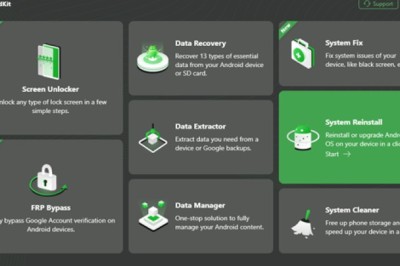views
Not everyone easily recognizes the name “benzo” (short for benzodiazepine) but most people are probably aware of the various drugs that fall under this category, such as Xanax, Valium, and Klonopin.
While benzodiazepines are heavily popular, ongoing research shows they pose a high level of risk- a risk that may outweigh their potential benefits. Here’s what you should know about the risk of benzodiazepine use.
Versatility
One of the first things to know about benzodiazepines is how widespread this class of drugs can be for various uses. Since the 1960s, benzos have treated many of the same symptoms that older drugs such as barbiturates used to be prescribed for, including anxiety and sleep disorders such as insomnia. However, benzodiazepines are also an anti-seizure medication, a medication for obesity, and even as an effective drug during alcohol detox treatment.
Not all benzos are the same, which explains why they can cover a wide range of treatment options. Benzos generally fall into three categories: short-, intermediate-, and long-acting. This describes how quickly these drugs enter the brain and the rate at which they quickly exit the body.
While over a dozen different benzos exist, the Food and Drug Administration (FDA) has approved only several of them for use. However, this shouldn’t be taken as an approval without a list of risks and dangers. In fact, it’s the benzos the FDA has approved that may not be so safe after all.
New Warnings for Old Drugs
One problem with benzodiazepines is the drug’s initial marketing in the 1960s. People quickly learned that barbiturates, which were initially thought to be safe, were actually highly addictive and came with a range of negative effects that occurred with regular use. Benzos were marketed as a safe alternative to these drugs, and in less than 20 years, they were among the most prescribed drugs in the world. However, this optimism soon began to decline as more and more people experienced the same kind of abuse potential as barbiturates were being phased out.
However, even with the same trajectory as barbiturates, it took decades before the FDA began to sound the alarm. The most popular of all benzodiazepines, Xanax (alprazolam). hit markets with its FDA approval in 1981. However, the original approval of Xanax did not carry the same warnings that can be found in FDA’s information today. In fact, it took 40 years for the FDA to recognize Xanax as a highly abusive and potentially deadly drug.
In September 2020, the FDA announced it would be updating the labels on all benzodiazepine medications to include its “boxed warning.” The federal agency wants to provide clearer information about the abuse risks, addiction, dependence, and withdrawal reactions that can happen when taking benzodiazepines. But what is a black box warning, and what information does it provide for benzodiazepines?
One example can be found in the revised prescription information for Xanax, which was updated in February 2021. In the boxed warning, the FDA gives three bullet-point warnings:
● Life-threatening conditions can occur when taking benzodiazepines along with opioids, including respiratory depression, coma, and death.
● Xanax use can expose people to abuse and addiction, which can result in overdose or death.
● Stopping Xanax immediately or drastically decreasing in dosage can result in life-threatening withdrawal reactions.
Ironically, barbiturate users experienced respiratory depression, which was listed as an advantage of benzodiazepine usage. To add to this, benzos were understood to be safer than barbiturates because they did not create the same habit-forming tendencies.
Unfortunately, the latest FDA information about benzos completely contradicts the original marketing of these drugs. It’s easy to see why some medical professionals refer to benzodiazepines as “the new opioids,” due to their epidemic status of widespread abuse. Many doctors are much more hesitant to prescribe their patients benzos today, but the damage has already been done for many people.
Risk vs. Reward
While the boxed warnings include important points about benzodiazepine use, the FDA stresses that boxed warnings should normally be based on weighing the risks of drugs and their possible benefits. While the boxes are meant for prescribers of benzos, individuals should remember that risks the FDA addresses are based on real instances of the warnings being issued. Unfortunately, tragedy is what warrants the FDA to update their prescription information for these drugs.
There is certainly a benefit to using benzodiazepines in certain medical situations, and these drugs should be considered as a whole, not just the risks or the rewards by themselves. However, many people are unaware of the risks associated with benzodiazepines until they experience them firsthand. While benzodiazepine addiction is a serious condition, it is not a hopeless one. If you or someone you know is battling benzodiazepine addiction, it is important to reach out to medical professionals as soon as possible and receive the treatment needed.
Sources
Department of Justice, Drug Enforcement Administration. (2020 April). Benzodiazepines. Retrieved https://www.dea.gov/factsheets/benzodiazepines
American Family Physician Journal. (2007, August 15). Treatment Options for Insomnia. Retrieved https://www.aafp.org/afp/2007/0815/p517.html
Delphi Health Group. (n.d). Guide to Alcohol Detox: Severity, Dangers, and Timeline. Retrieved https://delphihealthgroup.com/alcohol/detox/
Delphi Health Group. (n.d.). What are the Differences Between Benzodiazepines? Retrieved https://delphihealthgroup.com/benzodiazepines/differences/
Pub Med. (2013 September 28). The History of Benzodiazepines. Retrieved https://pubmed.ncbi.nlm.nih.gov/24007886/#:~:text=In%201955%2C%20Hoffmann%2DLa%20Roche,molecular%20modifications%20for%20enhanced%20activity.
Everyday Health. (2021 October 19). Xanax (Alprazolam). Retrieved https://www.everydayhealth.com/drugs/xanax
FDA. (2020, October 2). FDA Requiring Boxed Warning Updated to Improve Safe Use of Benzodiazepine Drug Class. Retrieved fromhttps://www.fda.gov/drugs/drug-safety-and-availability/fda-requiring-boxed-warning-updated-improve-safe-use-benzodiazepine-drug-class
FDA. (2021 February). Xanax (alprazolam) prescribing information. Retrieved https://www.accessdata.fda.gov/drugsatfda_docs/label/2021/018276s055lbl.pdf
United States Department of Health and Human Services Food and Drug Administration, Center for Drug Evaluation and Research, Center for Biologics Evaluation and Research. (2011 October). Guidance for Industry: Warnings and Precautions, Contraindications, and Boxed Warning Sections of Labeling for Human Prescription Drug and Biological Products- Content and Format. Retrieved https://www.fda.gov/media/71866/download
Yale Medicine (2019, December 11). Are Benzodiazepines the New Opioids? Retrieved https://www.yalemedicine.org/news/benzodiazepine-epidemic























Comments
0 comment